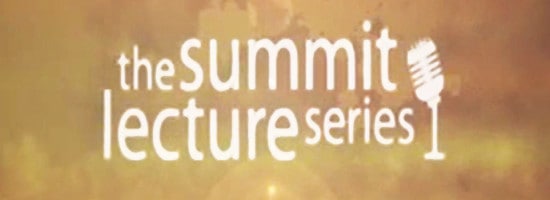
To purchase the entire Summit Lecture Series, Vol. 1 on DVD, go to: summit.org.
Previously, we discussed Scientism, Neo-Darwinism, Naturalism, Atheism, and Agnosticism.
Secularism is the idea that God does not belong in the public square. He must be kept separate from all public life. He is okay, as long as He remains a private, personal belief system.
An example of this is the Freedom From Religion Foundation, who fights for a strict separation of church and state among other things. I grew familiar with the organization’s co-president, Dan Barker, shortly after September 11, 2001, when he attempted to sue a college where I was working at the time. Some students asked him to answer some worldview-type questions, and what stood out was one of his answers:
“There is no evidence for God, no good argument for God, no need for a God, also I learned that the Bible is not reliable nor is it inspiring and any one of us is smarter and kinder than the God of the Bible. The terrorist attack was a faith-based initiative… Besides attacks are proof that prayers already failed us; it would not have been difficult for an all powerful God to divert those jets – I would call Him something of an accomplice if He truly existed.
In this tragic situation, religion was not the solution: religion was the problem. The solution then is to be found in reason, common sense, and hard work.”
Besides clearing stating his atheistic perspective, he also purports what is known as the “Problem of Good and Evil”. But moreover, he reveals that he is a Secularist – one who believes that no one should bring God into the public square, introduce Him into any debate, nor include Him in any rationale for anything.
This brings me to Hedonism.
Hedonism is based on the philosophy of: Eat, drink, and be merry. For tomorrow we die. Most people think that someone along the lines of Shakespeare or even Dave Matthews came up with this phrase, but it was actually Israel’s King Solomon in Ecclesiastes 2:24, while he was going through a hedonistic stage; and Paul rhetorically quoted him in 1 Corinthians 15:32. The main thrust of Hedonism is “you only live for a short time, so you might as well live for pleasure.”
Next on our list of various worldviews is Existentialism. While Hedonism says that we should live for mere pleasure, Existentialism claims that we need to find something that is meaningful, since life itself is not meaningful. Therefore, in order to live with purpose, we must make or find something that has meaning and purpose. A classic example of this is depicted in the movie Dead Poets Society. Robin Williams plays, John Keating, an English teacher at a New England prep school where the students there are trained and groomed to go to Ivy League Academies. Mr. Keating encourages the boys to “Carpe Diem” or “Seize the Day!”. As he puts it:
“…seize the day… because we are food for worms, lads. Believe it or not, each and every one of us in this room is one day going to stop breathing, turn cold and die… so seize the day, boys. Make your lives extraordinary.”
I find this interesting because as one of the boys, in particular, pursues this ideology, he runs into conflict with his father and ultimately commits suicide. Now, the boy’s killing himself is never determined as right or wrong within the context of the film. While tragic, it’s merely judged as the thing that had to happen because of the nature of the boy’s existential philosophy. It’s very much akin to the writings of Jean Paul Sartre.
For a more recent example of Existentialism, we need to look no further than Katy Perry’s lyrical masterpiece Firework.
Do you ever feel like a plastic bag,
Drifting through the wind,
Wanting to start again?Do you ever feel so paper thin,
Like a house of cards,
One blow from caving in?Do you ever feel already buried deep
Six feet under screams
But no one seems to hear a thingDo you know that there’s still a chance for you
‘Cause there’s a spark in youYou just gotta ignite the light
And let it shine
Just own the night
Like the fourth of July‘Cause baby you’re a firework…
What does a firework do? You light it, there is lots of light and lots of noise, and it ultimately explodes. Then it’s gone. That’s an existential perspective of our lives: lots of noise, lots of light, and then you’re gone. To an Existentialist, that’s what life is all about.